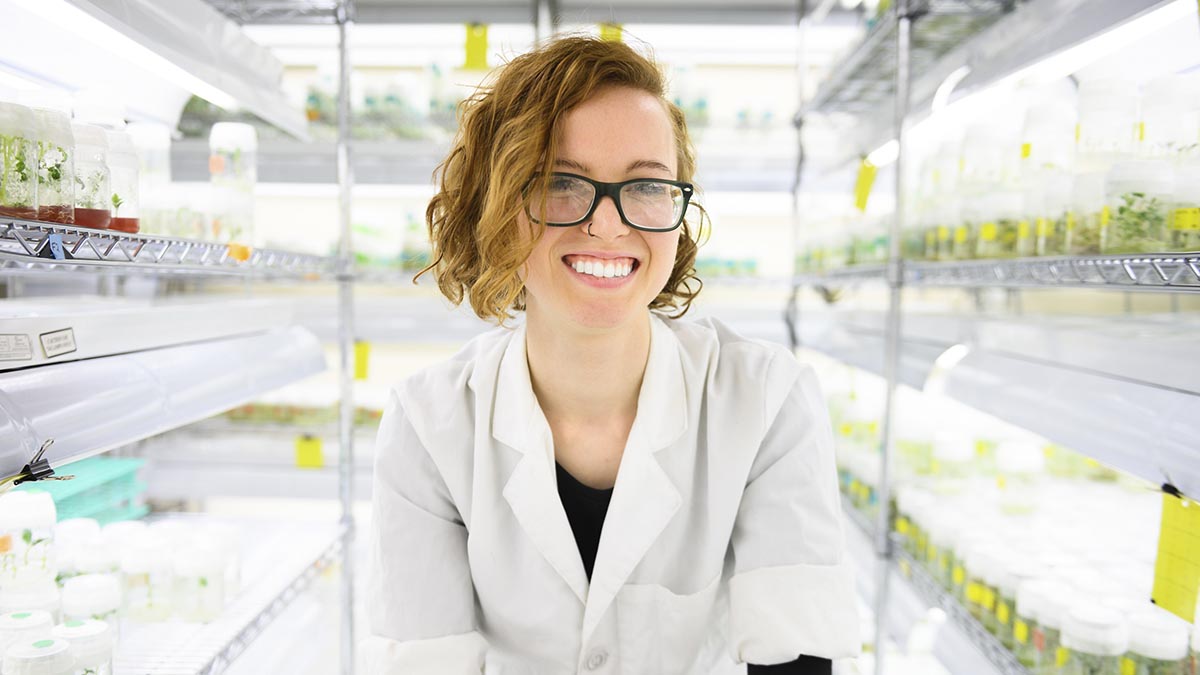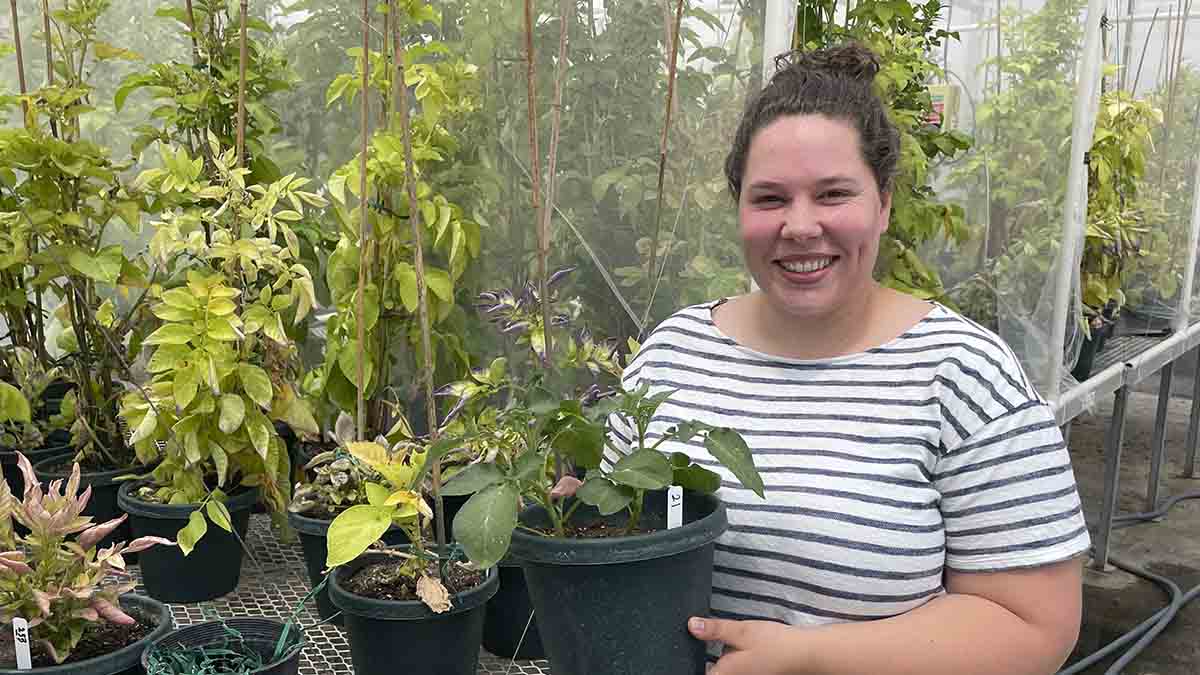Unlocking High-Tech Skills
To Tana Rayburn, creating that first genetically modified crop as an undergraduate student at the University of Idaho was akin to working magic.
Students such as Rayburn who pursue U of I’s biotechnology and plant genomics bachelor’s degree have the opportunity to learn skills more commonly taught at much larger schools or in graduate programs. The U of I program covers general molecular techniques and gives students a broad background to help them pursue careers in an array of cutting-edge fields.
Prepared for the Future
In Rayburn’s case, she was so well prepared by the undergraduate program, which she completed in December 2020, that she was allowed to move directly into a Washington State University Ph.D. program. In her doctoral program, she’s researching metabolic pathways to better understand the regulation of flavin production in stress responses.
Rayburn admits she used to be an opponent of biotechnology before she learned details of the science and the possibilities that it offers to help society tackle some of the greatest challenges lying ahead.
Prior to enrolling at U of I, she earned an associate degree in botany at a community college. Her initial experience making genetic transformations came during her first semester at U of I, in her plant tissue culture class. Using agrobacterium, which can modify a plant’s genome in the wild to make the environment more hospitable for themselves, she created tissue cultures from leaf cuttings, inserting a gene of interest. That gene causes plantlets soaked in a special chemical cocktail to turn blue.
“That plant tissue culture course showed me you can do incredible things with plants that I never thought were possible,” Rayburn said.
Rayburn went on to work as an undergraduate researcher with Joseph Kuhl, associate professor in the U of I Department of Plant Sciences. In Kuhl’s lab, she made transgenic potato plants on a weekly basis.
“It was wild. I remember calling my mom and telling her, ‘I’m going to make GMOs,’ and it was this crazy exciting thing,” Rayburn said. “I think it’s a really unique degree program they offer. I feel really prepared to do a number of different projects.”
Students in the program learn the ropes of scientific techniques such as gene silencing, gene cloning and CRISPR. No longer are plants merely viewed as food sources. They’re now used for making biofuels and even pharmaceuticals.
“We are providing students with the curriculum and academics and training and experience in one of the leading areas in plant sciences, which is biotechnology,” Kuhl said.
A Growing Field
Biotechnology and plant genomics used to be offered as one of four emphasis areas under a single major — sustainable cropping in landscape systems — before U of I’s former Department of Plant, Soil and Entomological Sciences was trifurcated to create a standalone Department of Plant Sciences in 2018.
Out of that department, the university also created separate departments for soil and water systems and entomology, plant pathology and nematology. Kuhl believes students weren’t fully aware of their options under the old format. Enrollment in the new degree has risen from 5-6 students under the old format to 15-20 students now that it’s offered as an independent major.
That growth has placed U of I on the radars of major employers, such as J.R. Simplot, Co., that once looked to bigger schools for biotechnology talent.
“They’re now realizing U of I is producing high-quality students, and they’re hiring,” Kuhl said.
Allan Caplan, associate professor of plant sciences who also teaches courses for the biotechnology and plant genomics major, emphasized the program teaches skills that cross over into other disciplines, such as human healthcare.
“We have an active and functional program to train people in these cutting-edge fields,” Caplan said. “They don’t have to go out of state. They can get a lot of what they can get elsewhere here.”
Nina Clark earned bachelor’s degrees in molecular biology and biotechnology and microbiology at U of I. In 2021 she started working as an assistant scientist involved in Simplot’s program that uses editing of genes native to the potato genome to breed better and more resistant potatoes.
“Especially at U of I, the biotech courses are taught so well and so thoroughly,” Clark said. “At Simplot I caught on to concepts so easily. That’s because I’d done it before.”
Though it’s offered under U of I’s College of Agricultural and Life Sciences, Clark recommends the biotechnology and plant genomics major to any students interested in understanding the science of human genetics.
“Those classes and those skills are what you’re going to need if you’re going to go into medicine — if you’re going to go into human science at all,” Clark said. “Plants are the best model organisms we have.”
Mallory Antunez, who grew up in the Boise area, graduated with a biotechnology and plant genomics bachelor’s degree from U of I in 2019 before enrolling in a biology master’s program at Southeast Missouri State University. She had a significant head start compared with her classmates.
“I got to graduate school and I was like, ‘Wow, this is way easier than I thought it was going to be,’” Antunez said. “I was so well prepared for it. I almost got bored in graduate school because I’d already done a lot of the stuff.”
Antunez recently accepted a job working as a biological science technician with the USDA Agricultural Research Service in Aberdeen.


Article by John O’Connell, College of Agricultural and Life Sciences
Photos by Joe Pallen, University Communications and Marketing and John O’Connell, College of Agricultural and Life Sciences
Published in August 2022








